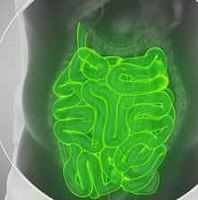Whole Food Diet Beneficial For Children with Crohn
After a 12-week study, investigators find a whole food diet, coupled with partial enteral nutrition, helps children with mild to moderate Crohn’s disease.

A new whole-food based diet could replace the traditional liquid-based diet aimed at helping children suffering from Crohn’s disease.
An investigative team, led by Arie Levine, MD, Wolfson Medical Center, Holon, Sackler School of Medicine, Faculty of Medicine, Tel Aviv University, compared the exclusive enteral nutrition (EEN) diet with a whole-food Crohn’s disease exclusion diet (CDED) designed to reduce exposure to dietary components that have adverse effects on the microbiome and intestinal barrier when coupled with partial enteral nutrition (PEN).
EEN, which consists of a liquid formula diet, while avoiding all other oral intake, has been recommended for children with mild to moderate Crohn’s disease in the past, but implementing the diet has proven challenging.
The team performed a 12-week prospective trial with children suffering from mild to moderate Crohn’s disease comparing the 2 diets.
In the study, 40 children were randomly assigned to a group that received the CDED diet, along with 50% of calories from formula for 6 weeks (stage 1) followed by CDED with 25% PEN from weeks 7 to 12 (stage 2). Also, 38 children in the study were randomly assigned to a group that received EEN for 6 weeks followed by a free diet with 25% PEN from weeks 7 to 12.
The investigators evaluated the participants at baseline and after 3, 6 and 12 weeks, while performing laboratory tests and 6S ribosomal RNA gene (V4V5) sequencing on stool samples.
The primary endpoint of the study was dietary tolerance, with secondary endpoints intended to treat (ITT) remission at week 6 (pediatric CD activity index score below 10) and corticosteroid-free ITT sustained remission at week 12.
Due to intolerance, 4 patients withdrew from the study in the first 48 hours.
The CDEP and PEN combination outperformed the EEN group. CDED and PEN was tolerated in 39 of the 40 children at week 3, whereas EEN was tolerated by just 28 of the 38 children in that portion of the study.
After the sixth week, 30 of the 40 children in the CDED and PEN group were in corticosteroid-free remission, while just 20 of 34 children given EEN were in corticosteroid-free remission.
After 12 weeks, 28 of 37 children given CDED with PEN were in corticosteroid-free remission, while 14 of 31 children in the EEN and then PEN group were in corticosteroid-free remission.
Corticosteroid-free remission was associated with sustained reductions in inflammation—based on serum level of C-reactive protein and fecal level of calprotectin—and fecal Proteobacteria, in the children given CDED and PEN.
“CDED plus PEN was better tolerated than EEN in children with mild to moderate CD. Both diets were effective in inducing remission by week 6,” the authors wrote. “The combination CDED plus PEN induced sustained remission in a significantly higher proportion of patients than EEN, and produced changes in the fecal microbiome associated with remission.”
The pathogenesis of Crohn’s disease involves the alteration of the microbiome, along with the breakdown in barrier function with defective bacterial clearance.
“An alternative environmental hypothesis for the increasing incidence of IBD and CD especially, is that changes in dietary intake and industrialization of food may induce alteration in the microbiome and impair the barrier function of the mucous layer and intestinal epithelium, which then allows adherence and immune triggering by the altered mucosal microbiome,” the authors wrote.
The study, “Crohn’s Disease Exclusion Diet Plus Partial Enteral Nutrition Induces Sustained Remission in a Randomized Controlled Trial,” was published in online Gastroenterology.